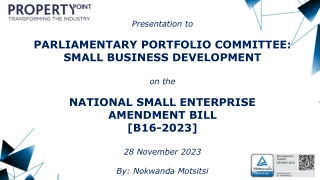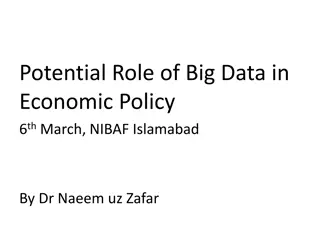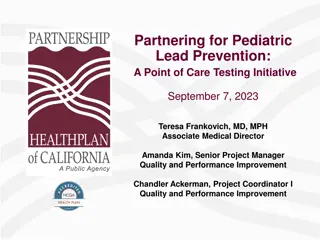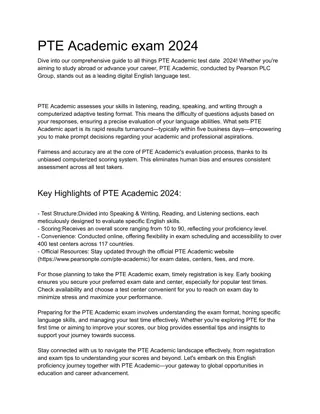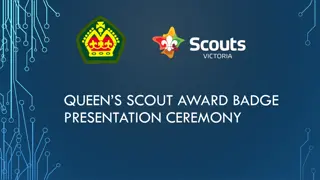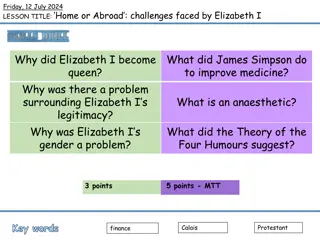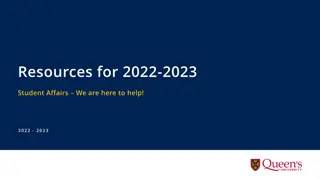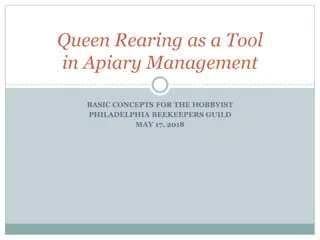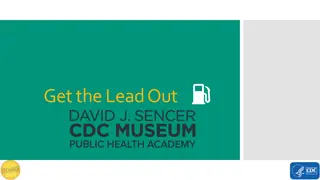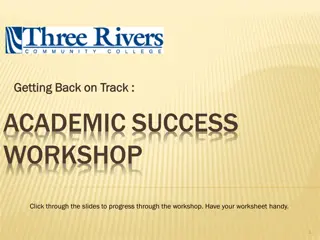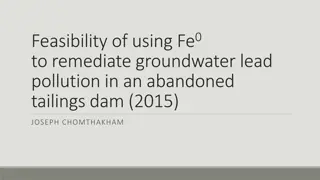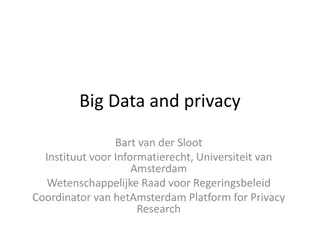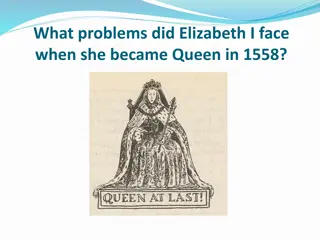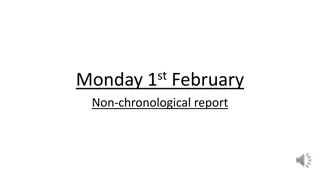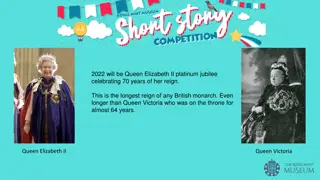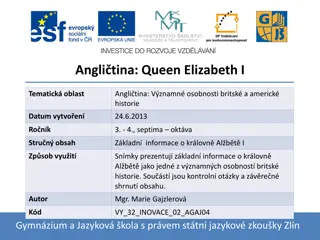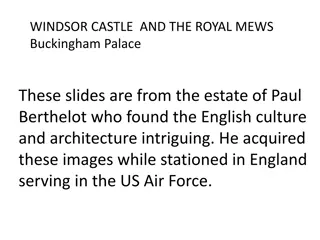Small Things Lead to Big Impact in Academic Success at Queen's University
Discover the impactful learning strategies and mentoring models at Queen's University that emphasize the importance of small details. From making wise choices to setting big dreams, students are guided towards success through efficient study habits and positive mindsets. The Wise Choice Model, along with personalized mentoring and goal-setting, helps students achieve academic excellence and personal growth.
Download Presentation

Please find below an Image/Link to download the presentation.
The content on the website is provided AS IS for your information and personal use only. It may not be sold, licensed, or shared on other websites without obtaining consent from the author.If you encounter any issues during the download, it is possible that the publisher has removed the file from their server.
You are allowed to download the files provided on this website for personal or commercial use, subject to the condition that they are used lawfully. All files are the property of their respective owners.
The content on the website is provided AS IS for your information and personal use only. It may not be sold, licensed, or shared on other websites without obtaining consent from the author.
E N D
Presentation Transcript
1 As I see the tremendous impact of small things, I realize there areno small things. Learning Strategies, Student Academic Success Services, Queen's University
2 The Wise Choice Mentoring Model: Helping Students Get Unstuck Linda Williams Learning Strategies Student Academic Success Services Queen s University sass.queensu.ca Learning Strategies, Student Academic Success Services, Queen's University
3 If you come to the fork in the road, take it. - Yogi Berra Healthy lifestyle choices + Efficient study habits + Positive habits of mind Learning Strategies, Student Academic Success Services, Queen's University
4 Wise Choice Model Dream Big Design Action Plan Assess Situation Develop Creator Perspective Learning Strategies, Student Academic Success Services, Queen's University. Adapted from: Downing, S. (2014). On course: Strategies for creating success in college and in life (7thed.), Boston: Wadsworth Cengage Learning.
5 Step 1: Dream Big and Set Intentions Mentee s Dreams Mentor s Questions Sample Answers Desired inner experiences (about being, feeling, thinking) What do you want your life at school to be like? Fit in, sing in choir, enjoy campus activities, feel independent, feel calm, friendship Desired observable outcomes (about doing, getting, having) What do you want to achieve at school? Earn specific grade or GPA, find a summer job, keep scholarship, learn to program in C++ Learning Strategies, Student Academic Success Services, Queen's University. Adapted from: Downing, S. (2014). On course: Strategies for creating success in college and in life (7thed.), Boston: Wadsworth Cengage Learning.
6 My Goals as Instructor 1. Throughout the day, I will feel calm, organized, and engaged. 2. Throughout the day, I will model good teaching/mentoring skills. I will be open to questions and comments from you and will respond constructively. 3. By the end of the day, I will have taught 4 sessions. 4. By the end of the day, I will feel satisfied with what I ve taught you by modelling, instructing, and through exercises. Learning Strategies, Student Academic Success Services, Queen's University
7 Feedback from Peer Mentor Homework Help Mentees make distinction between: what they want to achieve (i.e. observable outcomes) vs. how they want to feel or live (i.e. inner experiences) Break large, vague goals into smaller, more specific steps: Poorly structured goal: I want to be healthier Better structured goal: I want to be healthier, so I ll eat 6-8 servings of vegetables and fruits every day, sleep 7.5-9 hours a night, and go to the gym every other day Learning Strategies, Student Academic Success Services, Queen's University
8 Group Exercise Using the DAPPS format, write your personal goals for today s training: 1. 1 or 2 desired inner experiences, or emotions 2. 1 or 2 desired achievements, or new skills Remember, well-structured goals are: Dated, Achievable, Personal, Positive, Specific Learning Strategies, Student Academic Success Services, Queen's University
9 Step 2: Assess the Student s Situation Conversation Your Mentee is the best source of information Ask directly about issues, surrounding situation, their explanation of events Focus on (negative) issues + better times 1. 2. Assessment Forms Student Wellness Assessment or the Five Domains of Health Use to systematically guide conversation or assign as Mentee homework Learning Strategies, Student Academic Success Services, Queen's University. Adapted from: Downing, S. (2014). On course: Strategies for creating success in college and in life (7thed.), Boston: Wadsworth Cengage Learning.
10 Observation & Discussion of Role-play Watch for these things: Building rapport, encouragement, and hope Encouraging perspective and identifying strengths Language related to goal setting, obstacles Introduction to using Student Wellness Assessment Refer to Student Wellness Assessment handout Learning Strategies, Student Academic Success Services, Queen's University
11 Tips on using Student Wellness Assessment First, reinforce the specific strong items (4, 5 s) Second, identify topics of weak areas (1, 2 s) Ask about their response to the exercise: Self-critical? Discouraged when they completed it? Fairly accurate? Finish with hope: We can work on this together or You ve got good skills in X. I admire your determination to tackle Y. Learning Strategies, Student Academic Success Services, Queen's University
12 Step 3: Helping Students Develop a Creator Perspective Learning Strategies, Student Academic Success Services, Queen's University. Adapted from: Downing, S. (2014). On course: Strategies for creating success in college and in life (7thed.), Boston: Wadsworth Cengage Learning.
13 Inner Dialogue Victim Language Creator Language Inner Defender Inner Critic Inner Creator Inner Coach Learning Strategies, Student Academic Success Services, Queen's University. Adapted from: Downing, S. (2014). On course: Strategies for creating success in college and in life (7thed.), Boston: Wadsworth Cengage Learning.
14 Victim Language Blames Inner Dialogue Inner Critic The individual I m not good enough. I ll never get it right. I should have started earlier. They ll think I m dumb. Inner Defender Others My group was disorganized. The prof. gave bad instructions. The TA hates me. Learning Strategies, Student Academic Success Services, Queen's University. Adapted from: Downing, S. (2014). On course: Strategies for creating success in college and in life (7thed.), Boston: Wadsworth Cengage Learning.
15 Creator Language Encourages Inner dialogue Inner Coach Your self , emotions, ability You can do it. A messy draft is OK. You re smart enough to learn this. Keep trying. Inner Creator Perspective, creative problem-solving, ownership My assignment is late. I need to email my prof and make a plan. I ll do it now. Learning Strategies, Student Academic Success Services, Queen's University. Adapted from: Downing, S. (2014). On course: Strategies for creating success in college and in life (7thed.), Boston: Wadsworth Cengage Learning.
16 Exercise: Write Creator Language The problem is I can t get up in the morning for 8:30 classes. Therefore I will THINK individually. Write 3 Creator statements (4 mins) PAIR with a new neighbor SHARE your statements (3 mins) Did you feel empowered by the Creator Language? Learning Strategies, Student Academic Success Services, Queen's University
17 Challenges? What was difficult in this exercise? How would you introduce the concept of Inner Dialogue to a Mentee? Learning Strategies, Student Academic Success Services, Queen's University
18 Step 4: Designing an Action Plan Desires, Goals Assess Situation Troubleshooting Options and Outcomes Commitment Learning Strategies, Student Academic Success Services, Queen's University. Adapted from: Downing, S. (2014). On course: Strategies for creating success in college and in life (7thed.), Boston: Wadsworth Cengage Learning.
19 Sample Words: Action Plan Gain Commitment: We ve covered a lot of ground today. We talked about X, Y, Z. What specific [strategy, action, task ] makes the most sense for you to focus on this week? What will you committo doing? Troubleshoot: This sounds like a good choice. Can you imagine anything getting in the way of you doing it? How can you proactively troubleshoot those obstacles? Learning Strategies, Student Academic Success Services, Queen's University
20 Sample Action Plan Goal Obstacle Strategy & date Observation, Revisions Eat better Limited vegan options in cafeteria Contact campus Dining about options (Jan. 14) Met Jan. 15 order placed for cafeteria Get to all classes Sleepy Bed by 11:30, up by 7:45 (Jan. 14) Hard! Monday a.m. worst. Try 11pm relax then bed at 12. (Jan. 20) Stay caught up in Biology Hard to find time Make study schedule, allow 8 hours homework (Jan. 20) Structure helpful, need 10 hrs/week per course (Jan. 27) Learning Strategies, Student Academic Success Services, Queen's University
21 Facilitator Tips: Mentees Making Changes Change takes time and is a risky process. Work on one issue at a time, perhaps over several weeks. 1. The Wise Choice model is collaborative. Focus on mentee goals and move at their pace. 2. Change happens through your caring approach as a Peer Mentor, joint practical strategies, and your Mentee s persistence. 3. Learning Strategies, Student Academic Success Services, Queen's University
22 Exercise on Wise Choice Model Develop your language. What would you say to: Group 1: Describe the roles of Mentees and Mentors? Group 2: Discuss their completed Student Wellness Assessment? Group 3: Explain and ask about goals? Group 4: Explain and ask about inner dialogue? Group 5: Assess the student s situation? Group 6: End the first mentoring session? Learning Strategies, Student Academic Success Services, Queen's University. Adapted from: Downing, S. (2014). On course: Strategies for creating success in college and in life (7thed.), Boston: Wadsworth Cengage Learning.
Applying the Wise Choice Model Mentoring meetings use the Wise Choice problem-solving model to tweak previous strategies, and to address new issues: Opening: social conversation, homework Goals: topic or issue for today s meeting Assess: practical obstacles, inner dialogue Strategies: Peer Mentor models or explains strategies directly related to current issue Action Plan: homework for Mentee, Peer Mentor Learning Strategies, Student Academic Success Services, Queen's University
24 Creating a Success Plan A Success Plan is a record of techniques, strategies, and tips that have proven useful in managing the Mentee s personal or academic issues. Why make it? Fosters self-reflection Tracks positive summary of growth, change Reinforces independence in future problem-solving A Tool Kit for next term Learning Strategies, Student Academic Success Services, Queen's University
25 Sample Success Plan Specific issue or challenge Specific strategies that helped me Things to remember in applying the strategy Time management: Not knowing where to start with all of the work I have to do. 1. Term Calendar: Review my syllabi and record important dates (assignment due dates, tests, quizzes, exams, etc.). 2. Priority Matrix 1. Put Term Calendar somewhere I can see it, as a reminder of these upcoming dates. 2. Use all quadrants Learning Strategies, Student Academic Success Services, Queen's University
Did you meet your goals today? Check if you met your own goals: 1 or 2 desired inner or emotional experiences 1 or 2 desired achievements, or new thoughts or skills Learning Strategies, Student Academic Success Services, Queen's University
27 Questions? Learning Strategies, Student Academic Success Services, Queen's University
28 One Thing I Learned Learning Strategies, Student Academic Success Services, Queen's University


